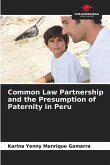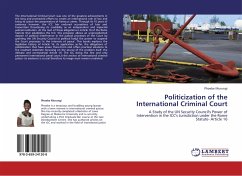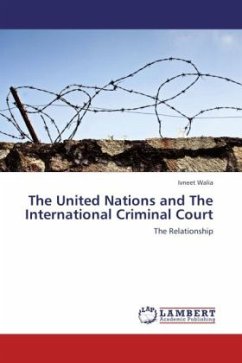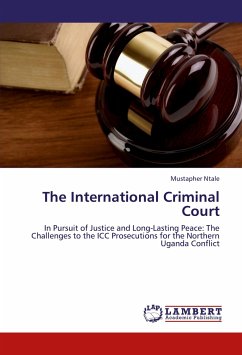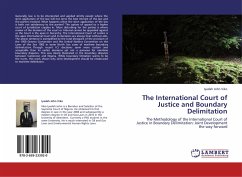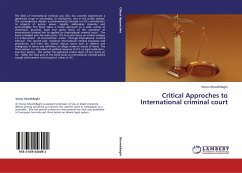This book first underlines the actual meaning and effects of the presumption of innocence, and subsequently considers its interpretation and application by the International Criminal Court, in four key respects: 1. Standards of proof; 2. Statements of public officials and media reports; 3. Pre-conviction detention; 4. Rights of Victims. It is argued that the presumption of innocence means the right of persons to be treated as innocent until proven guilty by the Prosecutor, who solely bears the burden of proof. Consequently, unless it is applied and interpreted as such, it is most unlikely that the International Criminal Court and thus any other criminal court will secure a fair trial for the accused.
Bitte wählen Sie Ihr Anliegen aus.
Rechnungen
Retourenschein anfordern
Bestellstatus
Storno


